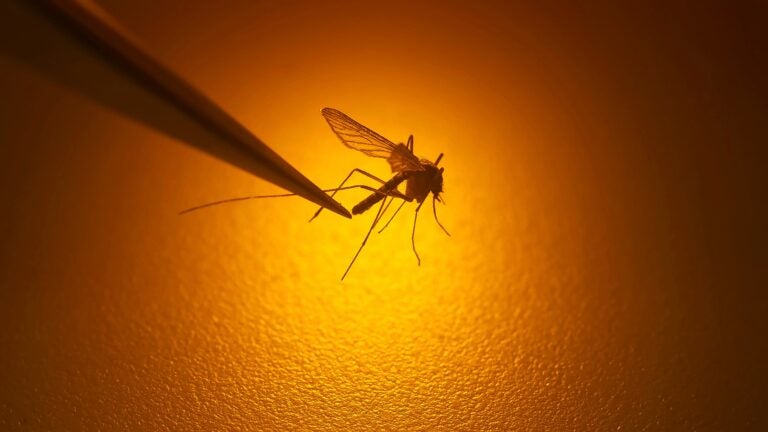Local News
“We are now in the peak time for transmission of mosquito-borne disease to people and it is important for people to know that so they can take steps to protect themselves.”

The risk for West Nile virus is now considered “high” in 10 Massachusetts communities, state public health officials warned Tuesday.
The Department of Public Health said the level of West Nile virus is now considered high in Acton, Bedford, Billerica, Boston, Brookline, Carlisle, Chelmsford, Dracut, Lowell, and Newton, based on mosquito samples taken from those communities.
The first West Nile virus-positive mosquitoes of the year were confirmed on June 17, and since then 168 samples have been detected across Barnstable, Berkshire, Bristol, Dukes, Essex, Franklin, Hampden, Middlesex, Norfolk, Plymouth, Suffolk, and Worcester counties, DPH said.
“[West Nile virus] findings in mosquitoes have accelerated rapidly over the last several weeks,” State Epidemiologist Catherine Brown said in a statement. “We are now in the peak time for transmission of mosquito-borne disease to people and it is important for people to know that so they can take steps to protect themselves.”
There have been no human cases of West Nile yet this year, but a goat in Lunenburg was diagnosed with the illness. Nineteen people in the state contracted the illness last year.
Most people don’t experience symptoms, but some can develop headaches, fever, nausea, vomiting, diarrhea, rash, and body aches. Most recover on their own without medical assistance, according to Boston health officials. But, people who are over the age of 50 or immunocompromised are at risk of developing severe illness from West Nile virus.
“The increased risk level for West Nile virus in Boston is a reminder that protecting yourself and your families from mosquito bites is important,” Dr. Bisola Ojikutu, Boston’s Commissioner of Public Health, said in a statement. “Residents should take precautions like using mosquito repellent and avoiding outdoor activities from dusk to dawn.”
West Nile virus isn’t the only mosquito-borne illness public health officials are urging residents to protect against. Eastern equine encephalitis (EEE) has also been detected in mosquitoes in the state this year.
State officials said Belchertown, Bridgewater, Carver, East Bridgewater, Easton, Granby, Halifax, Hanson, Lakeville, Middleborough, Pelham, Plympton, Raynham, Taunton, Ware, and West Bridgewater are considered at moderate risk for EEE.
There have been no confirmed human cases of EEE so far this year. In 2024, there were four human cases, with one fatality, and three animal cases of the virus.
“Both West Nile virus and EEE pose risk to the people in Massachusetts,” Public Health Commissioner Robbie Goldstein said in a statement. “The weather remains warm and somewhat humid, which increases mosquito activity. I encourage everyone to take measures to protect themselves: use mosquito repellent when outdoors, wear long sleeves and pants, and be aware of peak mosquito hours.”
In addition to using insect repellent and avoiding peak mosquito biting hours (dusk to dawn), officials are urging residents to take steps to protect their homes and animals by draining standing water and installing or repairing screens.
Residents can check the state’s map that tracks the risk for mosquito-borne illnesses in Massachusetts to determine the risk for EEE and West Nile virus in their area.
Sign up for the Today newsletter
Get everything you need to know to start your day, delivered right to your inbox every morning.


